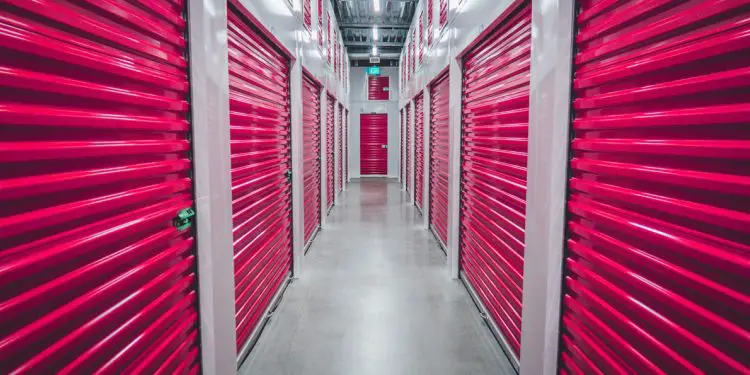What Should You Not Put in a Storage Unit?

Storage units help us stash our belongings, but some items are banned, as outlined in this article.
People safeguard objects in a storage unit because they don’t readily want them, don’t need to use them for some time, or don’t have enough space at home. However, there are some items you should never put in a storage unit. For instance, you shouldn’t put illegal or hazardous items in a storage unit.
Self storage software helps self storage owners monitor and manage their businesses, including self storage users’ belongings. It’s crucial to abide by the rules and only bring in what’s permissible so they can keep you and their other customers safe.
This article discusses the various items that shouldn’t be put in storage units, including some things you wouldn’t think of!
A List of Those Items You Shouldn’t Put in a Storage Unit
You can’t store any stuff of your choice in a storage unit. In addition to generally impermissible items, some self storage companies specifically prohibit certain goods.
That said, let’s have a look at the common unpermitted items.
1. Perishable food.
Even in a temperature-controlled facility, perishable food won’t keep for very long since it attracts pests, mould, and mildew. Moreover, storing anything—even things that seem perfectly safe—like canned food, can be challenging due to the risk of pests and fire.
If your storage unit of choice doesn’t permit perishables, and you have inquiries concerning stashing a non-perishable item, call the storage facility to learn about their policies and recommendations. It’s best to know in advance whether or not you can stash specific shelf-stable foods so that you can plan ahead.
2. Priceless and irreplaceable items.
While a storage unit may seem like the perfect place to stash your memorabilia of significant sentimental value, not all self storage facilities allow such goods. One possible explanation is that it’s difficult to assign a monetary value to objects you consider irreplaceable, either because they’re unlikely to sell at auction or because you would be devastated by their loss.
If you intend on storing such items regardless, we suggest you find a storage facility that takes security seriously. Ideally, the facility should be well-maintained and have security elements, including a fenced-in area, bright lighting inside, individually-alarmed units, video monitoring, and an informational website detailing these measures.
3. Weapons and ammunition.
Most storage facilities won’t allow you to store firearms, ammunition, or any weapon (for example, flamethrowers and hand grenades). The reason for this isn’t far-fetched — the facility faces substantial legal risk and obvious safety concerns.
4. Dead and living items.
You can’t store humans or animals in storage facilities, whether they’re alive or dead. Everything else, alive or dead, is subject to this regulation, including vegetation, flora, and even cremated remains.
5. Wet items.
It’s permissible to store gear for water-based activities (surfboards, kayaks, scuba gear, etc.) in a storage unit, but it must be thoroughly dried before storage. You should avoid storing anything that could become mouldy in your storage unit due to the container’s gloomy, closed conditions. Ensure everything is dry before storing it; otherwise, it’ll be unpleasant to revisit later and may even destroy your belongings.
6. Money.
Instead of keeping cash in a self storage unit, you should put it in a bank safety deposit box. For one, you’ll have more peace of mind knowing that your valuables are safe in a financial institution than at a storage facility.
7. Furs.
Fur garments have stringent preservation needs, particularly concerning temperature and light, to ensure their quality and durability. Since furs are so delicate, many storage facilities prohibit them from being kept in a unit. Instead of storing your fur in just any storage unit, search for a storage facility specialising in furs to maintain the proper conditions.
8. Stolen property.
You can’t keep any stolen property in a storage unit; it’s as simple as that.
Conclusion
Some items, such as stolen items and dead bodies, are obviously banned in storage facilities. However, some storage companies may have more specific or unexpected restrictions, such as fur coats, pornographic magazines and controversial tapes. Therefore, it’s best to find out what items a self storage company permits people to store before taking the next line of action.
Companies that implement an effective self storage software will clearly show what you can and can’t store – these companies will also likely have the best self storage marketing, so they shouldn’t be hard to find!
Frequently Asked Questions
Can you store a car in a storage unit?
In short, yes; you can store a car in a storage facility. In fact, it’s one of the most common reasons people rent out storage units.
What can I store in a climate-controlled storage unit?
Boxes, furniture, and seasonal decorations are just some items one may store in a climate-controlled storage facility. Items like furniture, literature and electronics don’t generally do well in environments with high heat or low humidity. Thus, you’re better off storing them in a climate-controlled facility.
What type of furniture can I put in a storage unit?
Wooden, antique, upholstered, and leather furniture are all acceptable in storage containers. As a result of the potential damage that heat and humidity can do to furniture, several businesses advise storing them in a climate-controlled container.










